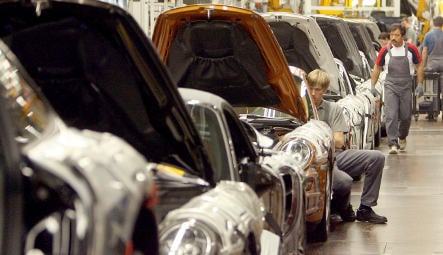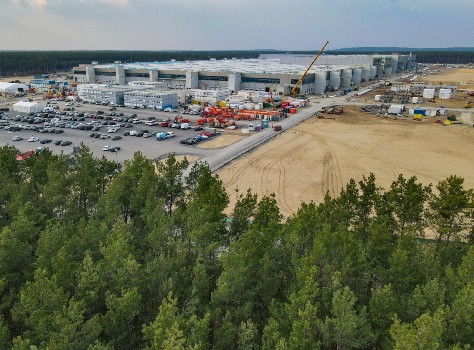Porsche said its year to July 2008 net profit soared nearly 51 percent to €6.39 billion ($7.21 billion) as the company booked massive gains on its VW shares.
Porsche said the contribution from various financial transactions involving stock in VW, in which it has built up a 74 percent stake, rose to €6.83 billion from €3.59 billion the previous year.
Porsche currently owns a direct stake in VW of 42 percent and controls about 32 percent more via stock options. Porsche vehicle sales, in contrast, rose only 1.3 percent to €7.46 billion.
Pre-tax profit, again buoyed by the VW gains, jumped 46.3 percent to €8.57 billion.
“Porsche’s operative earnings before taxes developed most satisfactorily,” it said.
Porsche warned again that 2009 will be a tough year and that it will be forced to cut production as sales fall, especially in the key US market.
“Currently we do not assume that we will be able to repeat the high total sales of the previous business year,” it said in a statement.
“It is very difficult to make reliable statements on the course of the current business year as a whole because of the current economic situation which is extremely tense,” Porsche said.
The Stuttgart-based company said it had sold 98,652 of its highly sought after sports cars and sports utility vehicles in past year, up 1.2 percent.
Porsche plans to increase its direct stake in VW to more than 50 percent before the end of the year and as it has bought up stock, the price has seen incredible swings on the Frankfurt stock exchange, rising last week at one point to more than €1,000.
That briefly made VW the biggest company in the world by market value.
On Friday, the shares traded at almost €400, much higher than their intrinsic worth, according to analysts.
Porsche said it would propose a dividend payment of €0.694 per ordinary share and €0.70 or each preferred share, along with a special dividend of €2 per share.



 Please whitelist us to continue reading.
Please whitelist us to continue reading.